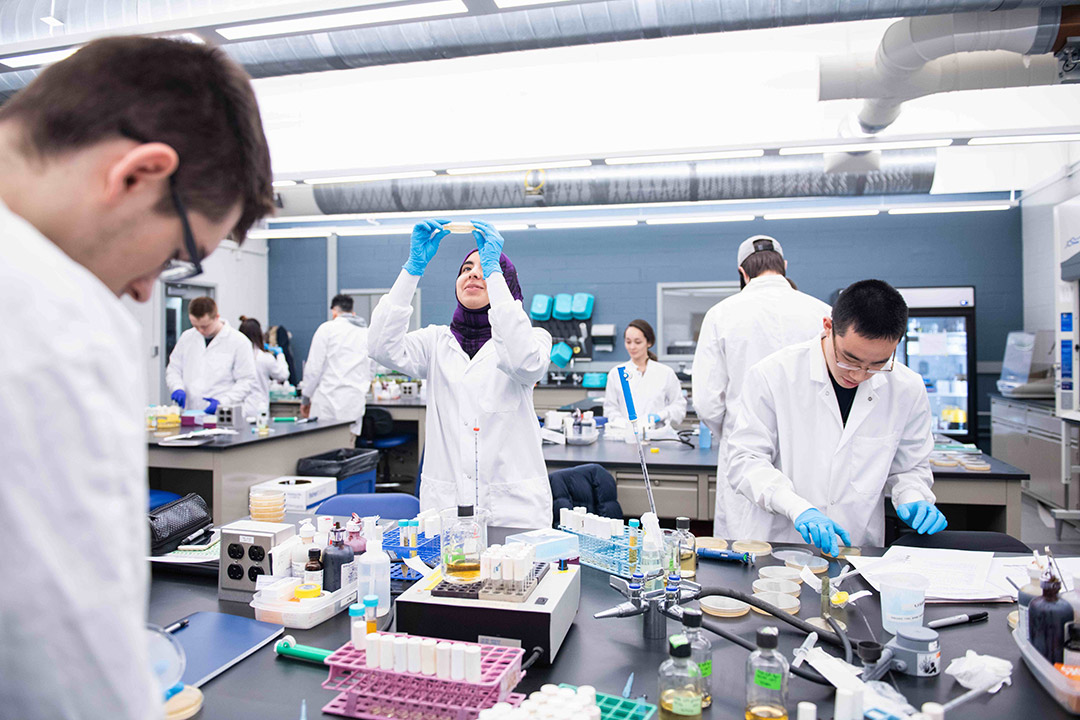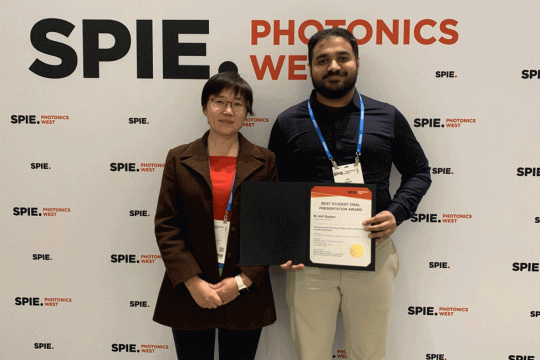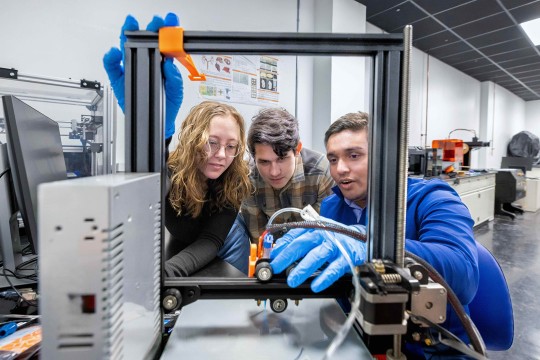RIT surpasses $94 million in new research awards
Funding anchors innovative research and support of national economic development initiatives
Gabrielle Plucknette-DeVito
RIT’s research portfolio continues to grow. Faculty-researchers attained more than $94 million in funding awards over the past fiscal year, and include undergraduate, graduate, and doctoral students in laboratory activities in the areas from nanotechnology to healthcare.
RIT reached another record year in sponsored research awards, attaining more than $94 million in fiscal year 2022-2023.
The university also set a record for the value of proposals submitted at $325 million—a 23 percent jump from the previous fiscal year.
Some key areas of research include nanotechnology, optics and imaging science, cybersecurity and artificial intelligence, and growth in life sciences and health fields, said Ryne Raffaelle, RIT’s vice president for Research.
Many of the awards were funded by national agencies such as the National Science Foundation ($16.5 million), the Department of Defense ($14.5 million), and the National Institutes of Health ($8.1 million).
“RIT’s research portfolio continues to grow across many different domains as evinced by new records in funding from NSF, DOD, and NIH,” Raffaelle said. “This is direct result of working at the cutting edge of many of the most important new technical areas.”
RIT also received awards from NASA, the Department of Energy, and $14 million from the state of New York.
“Funding for large national consortiums continues to be at an all-time high, and RIT continues to be an attractive partner for several significant programs,” said Raffaelle.
Several of the consortium initiatives are:
- New Energy New York, a program based at SUNY Binghamton, will receive training, workforce development and testing expertise from RIT’s Battery Prototyping Center. Funding would be substantial as the program is only one of a handful of finalists through the Biden Administration’s Build Back Better program, for more than $160 million over 10 years. At RIT, the Battery Center is a resource for regional companies, as well as undergraduate and graduate students to learn about the manufacturing processes related to lithium-ion batteries.
- New York Semiconductor Manufacturing and Research Technology Innovation Corridor (NY SMART I-Corridor) is a high-profile technology hub designed to attract new companies, strengthen supply chains, launch start-ups, and expand workforce training in the broad computer chip sector.
- The New York Climate Exchange is part of the winning plan to turn Governors Island in New York City into a world-leading climate center. Led by Stony Brook University, the initiative includes regional, national, and international partners.
- RIT is part of the U.S.-Japan semiconductor development program, launched earlier this year to increase research, educational opportunities, and the pipeline of graduates in computer chip manufacturing. The announcement came in May at the 2023 G7 Summit. RIT is one of six U.S. universities named as part of an international partnership to improve competitiveness in computer chip design, development, and manufacturing.
With the increase in funding, there is also a noticeable increase in expansion and investments in laboratory spaces on campus.
Since 2021, new research lab space was added through a renovation of Brown Hall. This past summer, the university broke ground for a new, two-story laboratory building on the west side of campus, which is expected to open in fall 2024.
Also currently underway are significant upgrades and expansions to the Battery Prototyping Center in Institute Hall and the Semiconductor Manufacturing and Fabrication Laboratory in the Kate Gleason College of Engineering.













